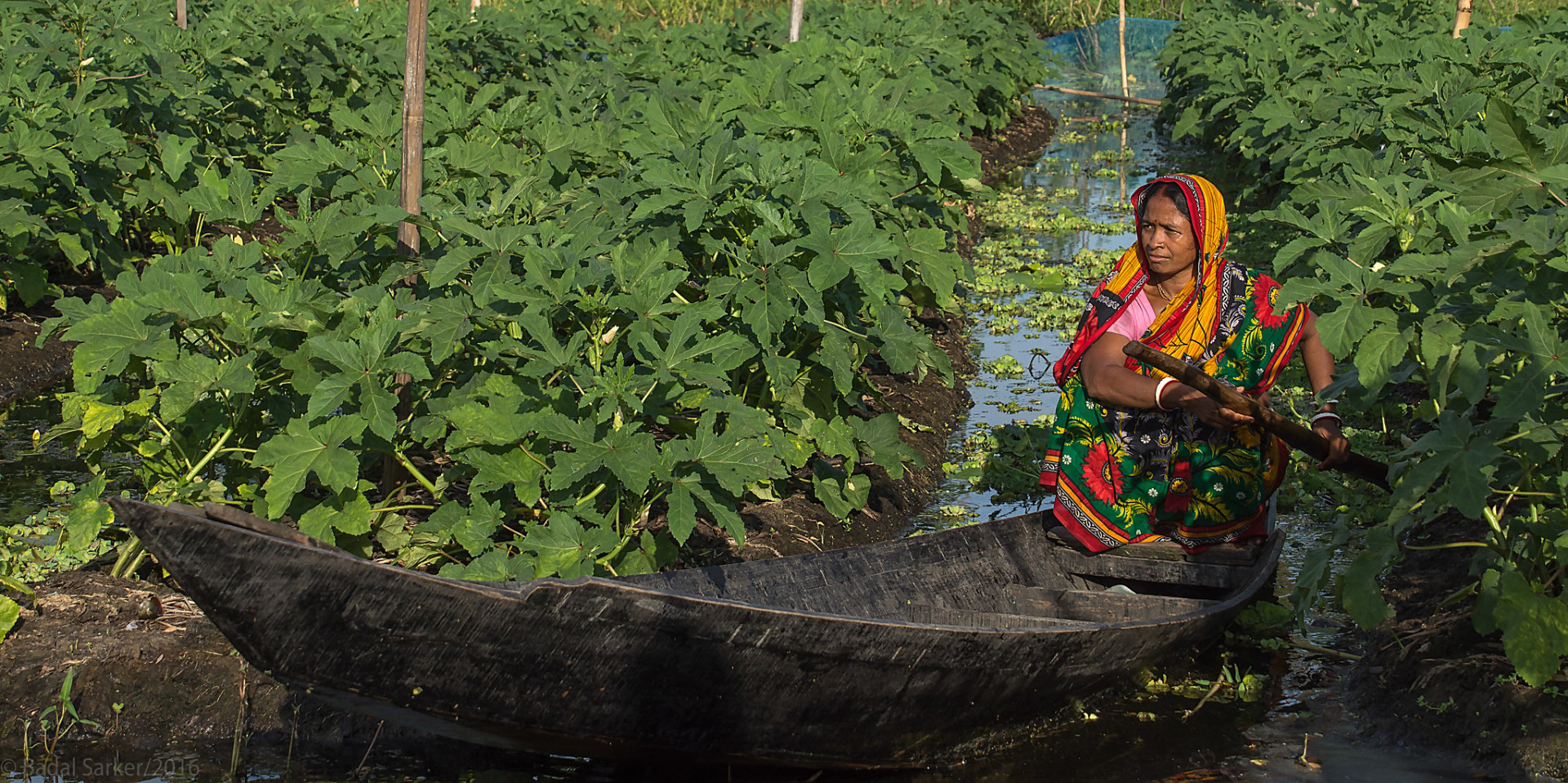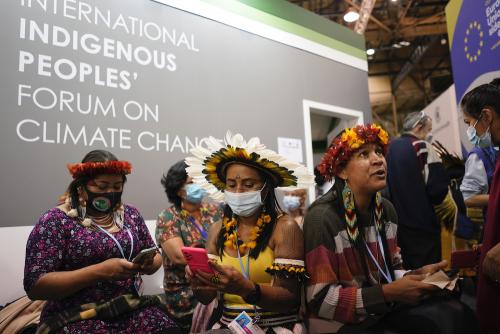
Credit: FAO/ 2022

https://unfccc.int/news/indigenous-peoples-leaders-in-climate-action
In the face of climate change and its worsening impacts on lives and livelihoods around the world, Indigenous Peoples are accelerating climate action globally and locally through ancestral knowledge systems and practices, and drawing on an intrinsic relationship with Mother Earth.
Indigenous Peoples are Vital Stewards of the Environment
Indigenous Peoples, numbering over 476 million and representing more than 5,000 cultures, preserve 80% of the world's biodiversity and 36% of intact forests continuing to inhabit territories home to unique ecosystems like the Amazon rainforest, the Himalayas, the Sahara Desert, or the Arctic, among many others. For millennia, Indigenous Peoples have developed knowledge systems based on observation of their territories and the transmission of knowledge from one generation to the next. These have enabled Indigenous Peoples to generate food and livelihoods without degrading the natural resources of these unique ecosystems.
“We must be good caretakers and not bad landlords. It’s not just Indigenous Peoples; it’s all human beings. It’s all plant life, it’s all water bodies, our sky relatives. We are all related,” stressed Great-Grandmother Mary Lyons from the Ojibwe people during a mandated LCIPP event at COP 28.
A Relationship with Mother Earth Based on Respect for Nature
Indigenous knowledge systems are rooted in Indigenous values and holistic worldviews, which, among other things, regard human beings as inseparable from nature. This reflects a symbiotic relationship in which humanity and nature help each other to live and prosper. Such worldviews have guided the practices of Indigenous Peoples around the world for millennia. For example, the Kayapo people in Brazil have preserved one of the largest Indigenous-managed rainforests in the world, sequestering some 1.3 billion metric tons of CO2 through their sustainable land management practices. Furthermore, this relationship has been the basis for national legislation in countries like Bolivia, Ecuador, and New Zealand, that recognizes and protects the rights of nature.
By Evolving with Nature, Indigenous Peoples' Knowledge is Highly Adaptable
While Indigenous practices have proven effective in environmental management, they now face unprecedented challenges due to climate change. For example, in the Arctic, thinning sea ice is disrupting traditional food practices, while in the Pacific, marine heatwaves threaten culturally important ecosystems such as forests, mangroves, and seagrasses.
Against this backdrop, Indigenous Peoples are working to adapt practices, offering innovative solutions to climate challenges. For instance, in Bangladesh, Indigenous Peoples have revitalized the practice of 'Baira Cultivation', creating floating gardens that adapt to rising floodwaters and ensure food security in increasingly vulnerable areas.
Key Actors in the UN Climate Change Process
“We have consensus that low-emission, nature-positive, and climate-resilient development is the way forward. Indigenous Peoples are well placed to lead just transitions based on time-honoured values, knowledge and worldviews", said Simon Stiell, UN Climate Change Executive Secretary at COP28.
Recognizing the need to strengthen the ethical and equitable engagement of Indigenous wealth of knowledge, technologies, practices, and efforts to address and respond to climate change, in 2015, the UNFCCC Conference of the Parties established the Local Communities and Indigenous Peoples Platform (LCIPP). Since then, the LCIPP has worked to ensure the incorporation of Indigenous knowledge and practices into national and international policies and programmes. It also supports the exchange and capacity-building of both Parties and Indigenous Peoples to adequately integrate this knowledge into climate policies and actions. The 2024 report of the LCCIP Facilitative Working Group summarizes progress to date and presents the LCCIP draft work plan 2025-2027 for review at COP29.
Through the work of LCIPP, the Paris Agreement's Global Goal on Adaptation (GGA) and Global Stocktake (GST) processes are also actively promoting this integration, recognizing the vital role of traditional ecological knowledge in promoting sustainable climate strategies. The GGA encourages ethical and equitable involvement, particularly by emphasizing the incorporation of Indigenous Peoples’ traditional knowledge, wisdom, values, and local knowledge systems in implementing the United Arab Emirates Framework for Global Climate Resilience. Similarly, the GST reaffirms that fair and sustainable climate crisis solutions must be built on inclusive and effective social dialogue, engaging all stakeholders, including Indigenous Peoples and local communities.
Learn more and engage with the LCIPP:
The idea is simple: creating an open “Portal” where engaged and committed citizens who feel to share their ideas and offer their opinions on development related issues have the opportunity to do...
Please fell free to contact us. We appreciate your feedback and look forward to hearing from you.
Empowered by ENGAGE,
Toward the Volunteering Inspired Society.